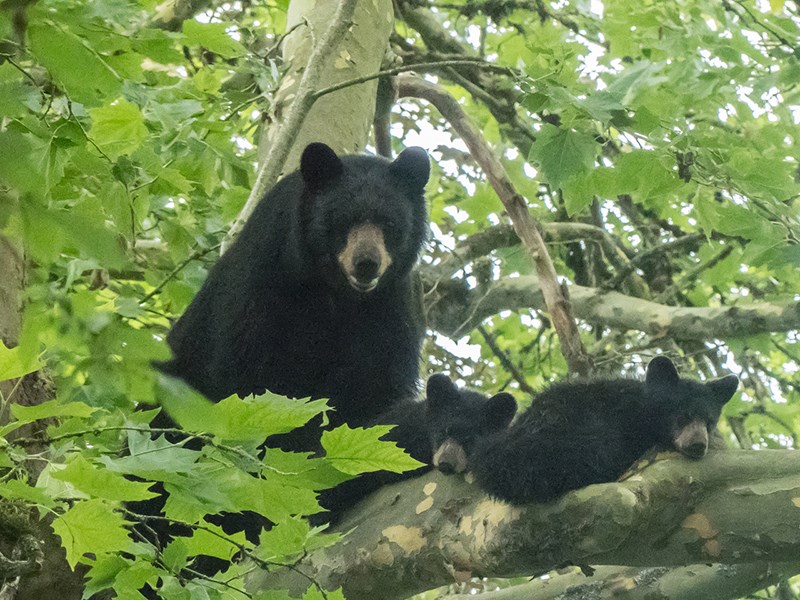The Editor,
Re. "3 people arrested, 3 bears are killed" and "Bear that made itself at home is caught, destroyed" (The Tri-City News, Aug. 1).
Many of us have been appalled by the ruthless killing of two bear families in Coquitlam and Port Moody. The cry for stricter garbage bylaw enforcement rose again.
But bears have been around for so long and people have been irresponsible all along. The only change I have seen for as long as I can remember is the number of bears killed each year.
The whole conservation officer system is based on fear. It created narratives of fed bears being dangerous and reinforced it by killing as many as they could get away with. It even has a matrix with one row of level of food conditioning and one of habituation to decide what action to take: observe, manage, remove or destroy.
Can we just stop and ask what habituation means, what food conditioning means? As if the bears are on a one-way track with no return that, once they taste human food and get close to humans, they are beyond any redemption. As if the bears are some youngster involved in a gang, developing from petty theft to gun robbery.
The truth is bears are just looking for food and will eat whatever is available. They switch between natural food and human food, not due to taste but availability. Otherwise, all the rehab centres would have been committing horrible crimes by feeding rescued wild animals orchard fruits and supplemental milk mixtures. Food conditioning is just a badly coined term with no scientific base.
As for habituation, bears are like people, have different personalities and react differently under different circumstances. Unless they have traumatic experiences with humans, fear of humans is not really in their nature.
According to First Nation legends, bears are just brothers. Unless you are really a bad sibling, there is no reason your brother would be in fear of you. In the cases the conservation officers reported that the bears being not co-operating, not running away from humans, they often failed to tell you there was food involved. To a hungry bear, food trumps other concerns and a bruin would not give up a meal without a struggle. Habituation is a badly coined term with no knowledge of bear biology and against basic psychology.
The BC Conservation Officer Service itself reported receiving double the number of bear sightings but we all see there is no big increase of injury from bears, let alone death. If bears are really dangerous, shouldn't the officers be patrolling the streets and knocking on doors instead up setting up traps and carrying a shooting spree in residential areas? Shouldn't municipalities be sending bylaw officers knocking on doors and issuing tickets?
That doesn't happen. So as a resident, if I don't want to inconvenience myself, what could I do? I could make tons of sighting calls so the officers could claim there is threat from bears and that need to be removed. I could fight the warnings and tickets, arguing from all possible perspectives and may only have to pay one ticket in 10 years, during which time, the nuisance bears would be shot and problem be solved, until next year.
It is clear that the conservation officers and the municipalities, by sending out "bears are dangerous" messages and by rounding up and killing them, enabled the irresponsible behaviours of residents. If they are really serious that it is a human problem, not a bear problem, all they need to do is to leave the bears alone. When the officers stops killing, the residents would realize they can no longer have their problems removed. If you attract the bears to your property or your street, you need to deal with the consequences of broken garbage cans, strewn garbage and close encounters.
But what if someone gets hurt or killed by bears? Really, if bears are that dangerous, why do you leave your garbage out, leave your bird feeders out, leave your fallen fruit lying around? Or why do you allow your neighbours to do that? If someone sped down your street, wouldn't you chase and catch him and make sure he didn't do it again ever?
Ying Yan Zhu, North Vancouver



